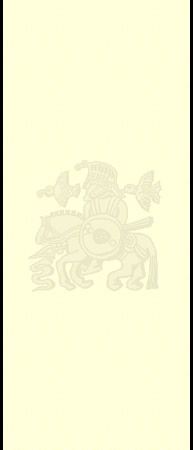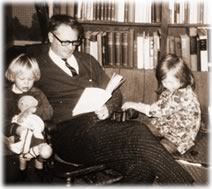



| Web site design and maintenance by Akikaze Media Services. All content of this site, unless otherwise noted, is copyright ©2001 Robert Bly. All Rights Reserved. Any duplication, in any form without the written consent of the copyright holder is prohibited. |
Interviewer: May I ask you about translation? You've done a lot. Why?
Robert Bly: Take Tomas Tranströmer. Translation of him was an amazing experience for me because there was a kind of image appearing in him that I'd never seen before. And it's interesting that the Europeans recognized this, and within a few years he was being honored all over Europe. So how can you describe the strange images that he produces?
We got ready, and showed our house.
The visitors said, "You live well.
The slum must be inside you."
One time he was taken into the Swedish army to do his duty for a few weeks. "Task to Be Who I Am."
Even when I'm in this solemn and absurd role,
I am still the place where creation does some work on itself.
This is a far, far reach from French surrealism. Most of the images of French surrealism don't have a center. They're like a wheel without any spokes.
Interviewer: Can you define the center in that image, for example? Give us some idea about what that center might be.
Robert Bly:
Dawn comes. The sparse tree trunks take on color now.
The frostbitten forest flowers form a silent search party
after something that has disappeared in the night.
 He's so unbelievably fast! He's like some runner, you know, he enters the forest and suddenly he's way gone, he's ahead of you, I don't know where he is. "Forest flowers form a silent search party after something that has disappeared in the dark." And it's not a teasing thing, exactly, but there's a feeling that Tranströmer is closer to some silent energy in the middle of the universe than the rest of us are. "Things not yet happened are already here. I feel that, they're just out there. "The murmuring mass outside the barrier. They can only slip in one by one." That's incredible. "They want to slip in. Why? They do, one by one. I am the turnstile." So, so that's an amazing thing, I mean, he is saying that he is the center of these objects and creatures and images that want to come into the world. But he doesn't he is a very important center. He's only the turnstile. And that's so beautiful and it's so different from Michelangelo, who says, "I made all this. I am God."
He's so unbelievably fast! He's like some runner, you know, he enters the forest and suddenly he's way gone, he's ahead of you, I don't know where he is. "Forest flowers form a silent search party after something that has disappeared in the dark." And it's not a teasing thing, exactly, but there's a feeling that Tranströmer is closer to some silent energy in the middle of the universe than the rest of us are. "Things not yet happened are already here. I feel that, they're just out there. "The murmuring mass outside the barrier. They can only slip in one by one." That's incredible. "They want to slip in. Why? They do, one by one. I am the turnstile." So, so that's an amazing thing, I mean, he is saying that he is the center of these objects and creatures and images that want to come into the world. But he doesn't he is a very important center. He's only the turnstile. And that's so beautiful and it's so different from Michelangelo, who says, "I made all this. I am God."
I think I've made my point here, that by trying to translate something like that, the poems come deep inside you, the images come deep inside you, and you no longer say, "Well, Tranströmer is a wonderful poet," or "This is very fresh." You don't say that. You feel yourself, because of the work you've done on the image, invaded by the image. You feel that it has become a part of your house like someone who's moved into your house, and your house is changed then. Your house has changed because these images have come in. So that's the way I feel about translation. It's a blessing.